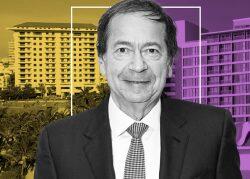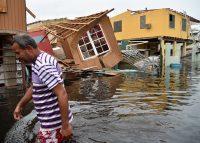YouTube phenom Logan Paul moved into a $13 million mansion. Crypto billionaire Brock Pierce bought an $18 million hotel. Well-heeled investors offer locals blank checks and ask them to fill in what they think their homes are worth.
Welcome to Puerto Rico, where a wave of gentrification has property prices rising on an island where 43 percent of the population live below the federal poverty level, according to the New York Times. Besides shimmering ocean views, the investors are also chasing a powerful lure: tax breaks.
The real estate boom began a few years ago in San Juan, Puerto Rico’s capital and largest city, and has since ricocheted across the Caribbean island. Driven by tax incentives created to draw investment in the wake of Hurricane Maria in 2017, the influx of affluent new settlers has displaced residents who can no longer afford to live in their hometowns.
The gentrification has carved beachheads around a U.S. territory slammed in recent years by natural disaster, broken infrastructure, bankruptcy and an exodus of 12 percent of its population.
Take Rincón, a touristy surf town with spectacular sunsets on the island’s westernmost tip.
New arrivals, many of them finance and tech investors who have applied for tax breaks, have rushed in, driving up rents and home prices, according to the Times.
Some are cryptocurrency traders who hold weekly happy hours at a seaside bar. A barbecue truck that opened in August accepts Bitcoin and other cyber currencies for its mainland-style chicken.
Property flippers have also swooped in. Some have turned homes into short-term vacation rentals, creating entire Airbnb corridors and putting homes out of reach to locals.
In 2017, a two-bedroom condo listed for an average of $290,000. Now, the same unit could ask $420,000, the Times reported. The average income in Rincón is around $19,000 a year.
“It feels like Hurricane Maria placed a ‘For Sale’ sign on the island,” said Gloria Cuevas Viera, a Rincón resident who is helping to lead the fight against gentrification.
Renters driven out by skyrocketing prices along the coast can move inland to cheaper towns — but then face higher costs for gas, tolls and commuting, Heriberto Martínez Otero, executive director of the Ways and Means Committee in the Puerto Rico House of Representatives and economics professor at the University of Puerto Rico, told the publication.
The pushback from residents includes recent demonstrations against the tax breaks, which favor outsiders over locals. Anti-gentrifications posters, with pictures of Logan and Pierce, say in Spanish, “This is what our colonizers look like.”
At the same time, residents who sell their homes have benefited from the boom in property prices.
Gov. Pedro R. Pierluisi has cheered the many investors buying up luxury homes. A key motivation for passing the tax law was the collapse of the island’s luxury real estate market, he said in January.
“What was intended was an influx of people with capital to give life to the real estate market,” he said.
[NYT] – Dana Bartholomew
Read more


